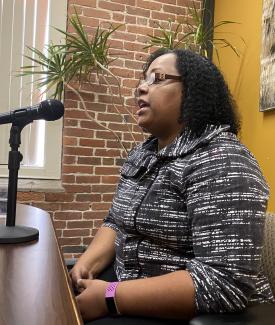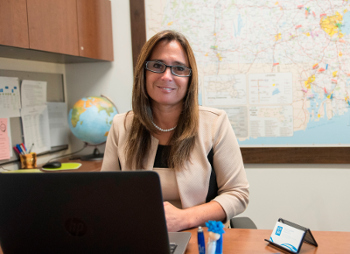Do you have a question about JRI services?
Episode 4 - Please note, this podcast was recorded in February 2020
Most would agree that we live in a sex-saturated culture. So why do we find it so hard to talk about sex?
Deborah Jackson, Clinical Training and Developmental Specialist for JRI, trains clinicians and staff to handle sexualized behavior that young clients are exhibiting (or thinking about exhibiting).
“We come with our own personal beliefs. We come with our own morals. We come with our own personal histories,” she says.
She says that how effective clinicians or staff are often depends on their own attitudes about sex and about “sexualized behaviors that are normative for every stage of development.”
For example, 4-year-olds who feel overwhelmed or overtired sometimes will stroke their genitals to calm themselves.
“For a little kid it doesn’t feel any different than stroking their arm or their hair (or carrying around) a blanket or teddy bear,” she says. “(But) we don’t want them doing it in the mall when they’re tired and mommy’s made them shop too much.”
For older children in their early to mid-teens, sending nude or partially nude photos is normative behavior — that is, something that a “great number of people are doing.”
Jackson recommends that adults try not to overreact to such behavior, but seek to make it comfortable for children to talk about, if only to listen and then remind them, “These are not our values. There are some safety risks” that come from sending out nude photos that could end up on the internet or in the hands of adults looking to exploit children for sex.
“The conversation needs to be more than ‘Just stop it,’” she says. Adults’ discomfort means most children never get to have “frank, honest conversations with their parents about sex.”
And sex education in most public schools is inadequate, Jackson says, noting that only 24 states require that the schools teach even the basics.
So for many children, what they learn about sex comes from their friends — or the internet. The average age of a child’s first exposure to explicit online photos or videos is 11, Jackson says.
If you or your organization are interested in exploring having Jackson offer a training on this topic to your teams, please reach out to Tara Sagor, LMHC, Director of Training and Trauma Response at JRI.
Please visit the JRI website for additional trainings. www.jri.org/training




